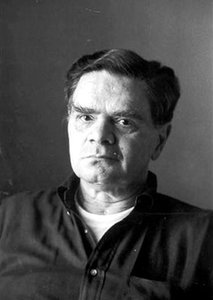A Quote by James Schuyler
I do not usually revise much, though I often cut, particularly the end or toward the end of a poem.
Related Quotes
I think Miss Moore was right to cut "The Steeple-Jack" - the poem seems plainer and clearer in its shortened state but she has cut too much... The reader may feel like saying, "Let her do as she pleases with the poem; it's hers, isn't it?" No; it's much too good a poem for that, it long ago became everybody's, and we can protest just as we could if Donatello cut off David's left leg.
The subject of the poem usually dictates the rhythm or the rhyme and its form. Sometimes, when you finish the poem and you think the poem is finished, the poem says, "You're not finished with me yet," and you have to go back and revise, and you may have another poem altogether. It has its own life to live.




































